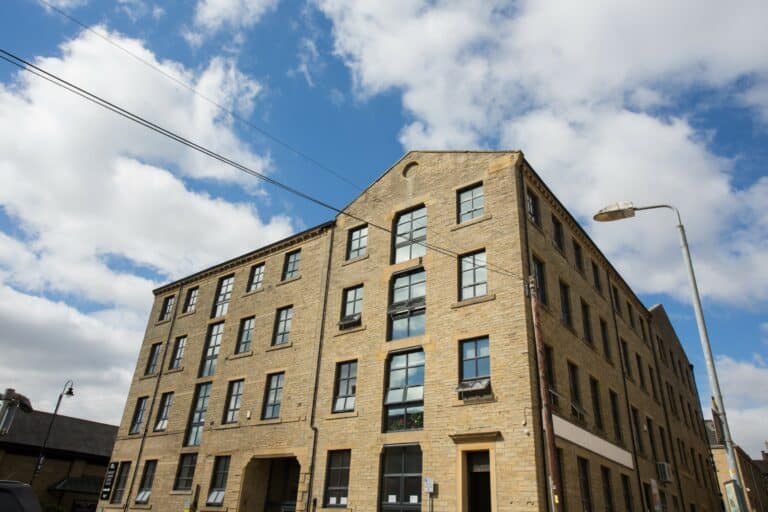George Lancaster and Jesse Stott are Coordinators at Leeds Beckett University’s Leeds and Halifax University Business Centres (UBCs).
COVID-19 has hit the local business sector hard this year, and the UBCs – which provide flexible office services, meeting space, training and mentoring, as well as specialist university facilities and expertise – have committed to new ways of providing support and advocacy.
Across the region, businesses from bars to tech firms are finding new solutions to help them survive what is an undeniably challenging time, with rapidly changing updates on how businesses can open and trade.
What this means for the future of businesses in Leeds, Halifax and Wakefield – where the UBCs are based – will depend on support systems like Leeds Beckett’s. We talked to George and Jesse, respectively Leeds Beckett’s UBC Leeds Coordinator and UBC Halifax Coordinator, about how organisations like theirs can ensure the future success of British business.
Leeds Beckett University and local businesses
“Research is by its very nature often at the forefront of innovation, discovering new methods or avenues to improve current techniques,” began Lancaster. “This creates a natural cohesion with business and is at the forefront of why Leeds Beckett University has had a business incubator running in some form for the last 20 years.
“We’ve run a number of successful Knowledge Transfer Partnerships, a government-funded programme aimed at helping businesses develop and gain competitive advantage through university research and the help of a highly-skilled graduate or student who is temporarily embedded within the business.”
The UBCs were set up to support Leeds Beckett’s wider objective of aiding the growth of the local economy. Lancaster said: “With the opening of our University Business Centres in Wakefield and Halifax – as well as our long running Leeds centre – we are actively trying to encourage business growth in these areas with our support, whilst offering a front door into the University and all the specific expertise we can offer…
“It has the dual benefit of growing businesses in these areas and providing local job opportunities for our students and graduates from these locations, with direct relationships resulting in businesses hiring Leeds Beckett students.”
How to cope in a post-COVID environment

“Introduce a mixed home-working mixed office-based week soonest to strengthen bonds, whilst keeping home working desirable, trusted and productive; invest in equipment that means your team can work anywhere and ensure support is given too; [and] support team members who may need help or investment to set up safe and comfortable home offices with adequate and secure connectivity. Stay positive, be kind to yourselves, vocalise any concerns or issues and ask for help.”
And when it comes to technology, “Skype, Teams, and Zoom are the businessperson or employee’s friend. Learn to love these tools and use them! It won’t make actual in-person meetings any less needed, just fewer.”
Business leaders also need to “Encourage and foster flexibility in terms of working hours,” said Stott – “it’s hard to work from home and it may be that employees who are productive in the office 9am to 5pm find it impossible to focus during business hours at home. Productivity and people, not presenteeism!”












